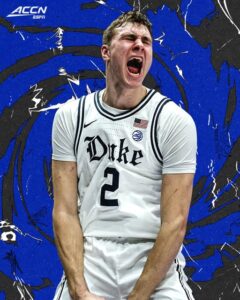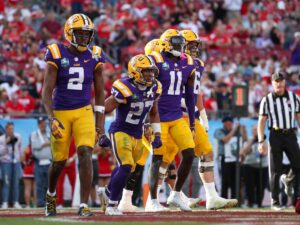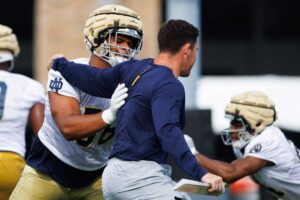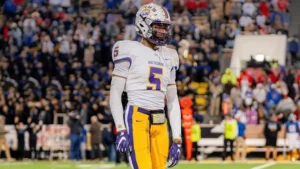
In the modern landscape of college football, the rise of Name, Image, and Likeness (NIL) rights has forever altered the dynamics of recruitment, player compensation, and team loyalty. One of the most recent and high-profile incidents that has brought the evolving NIL discussion to the forefront is the case of Nico Iamaleava, a highly touted quarterback recruit, and his decision to “no-show” or remain non-committal to the Tennessee Volunteers amid a surge of NIL talk. This story encapsulates not only the challenges associated with NIL but also the tension between university athletics, student-athletes, and commercial interests.
The Emergence of NIL in College Athletics
Before diving into the specifics of Iamaleava’s situation, it is essential to understand the broader context in which NIL has become a significant factor in college athletics.
The NIL rights, granted in July 2021 by the NCAA, allow college athletes to profit from their personal brand. This was a monumental shift in the NCAA’s longstanding amateurism policies, which historically prohibited athletes from receiving any form of compensation beyond scholarships and stipends. With NIL, student-athletes can now enter into sponsorships, social media partnerships, and other revenue-generating ventures that leverage their name, image, and likeness.
While the change has opened up new opportunities for athletes, it has also created a competitive and sometimes controversial landscape. Universities, boosters, and various outside entities have scrambled to secure the most talented players, with some seeing NIL deals as an avenue to gain a competitive edge in recruiting.
However, the sudden influx of financial interests has also complicated relationships within college football teams. Coaches, athletic directors, and players must navigate the balance between team cohesion and individual financial gain. This is where Iamaleava’s situation comes into play.
Who is Nico Iamaleava?
Nico Iamaleava is a 6’6”, 200-pound quarterback from Long Beach, California, who emerged as one of the top quarterback recruits in the 2023 class. Known for his strong arm, athleticism, and ability to make plays both in and outside the pocket, Iamaleava quickly became a coveted prospect for college programs across the nation.
Given his skill set and potential, Iamaleava was ranked as a top-five recruit in his class and one of the highest-ranked quarterbacks in the country. His recruitment was under intense scrutiny from national media outlets, college football fans, and prospective programs who saw him as a franchise-altering player.
Iowa State, Alabama, Georgia, and Tennessee were among the schools vying for Iamaleava’s commitment. However, the storyline surrounding his recruitment took an unexpected turn due to the increasing importance of NIL deals, leading to a dramatic saga in the world of college football recruiting.
The Tennessee Volunteer Connection
In December 2022, Iamaleava made headlines when he committed to play for the Tennessee Volunteers, a team that had experienced a significant resurgence under head coach Josh Heupel. Heupel, known for his high-powered offensive scheme, presented a tantalizing opportunity for Iamaleava, who fit the mold of a dual-threat quarterback capable of excelling in Heupel’s system.
The Volunteers had risen to national prominence, with an explosive offense that helped them achieve an 11-win season in 2022. This made Tennessee an attractive destination for Iamaleava, who would have had the opportunity to lead an exciting program in the SEC. However, Tennessee’s recruiting pitch wasn’t just about the football team—it was also about NIL opportunities.
As rumors swirled about how much Tennessee could offer its recruits in terms of NIL deals, the conversation shifted from purely athletic development to financial incentives. Iamaleava was reportedly in discussions with multiple NIL organizations, including Tennessee-based collectives, about earning potentially millions of dollars while playing for the Vols.
This growing focus on NIL deals, while offering opportunities for Iamaleava, also served to complicate matters.
The No-Show and the NIL Dilemma
In early 2023, as the National Letter of Intent (NLI) signing period loomed, Iamaleava’s situation began to take a strange turn. He had originally committed to Tennessee, but as the signing period approached, rumors began to circulate that he was no longer as enthusiastic about his decision.
Reports began to surface that Iamaleava had been non-committal about his commitment to Tennessee and had, at times, failed to attend key recruiting events or official visits. Speculation arose that the primary factor influencing his wavering was the ongoing discussions surrounding NIL compensation. With the explosion of NIL deals in college football, particularly in the SEC, it was clear that the financial aspect of the recruiting process was becoming more important to many players, including Iamaleava.
Despite his commitment to Tennessee, Iamaleava reportedly attended other schools’ recruiting events, including those at Alabama, Georgia, and Oregon, further fueling speculation about his uncertain future. The whispers about his indecision intensified as the signing period came and went with no official commitment from Iamaleava. As NIL became an increasingly significant factor in his decision, it seemed that Iamaleava was biding his time, waiting for the best possible deal.
The Role of NIL in Iamaleava’s Decision
The growing importance of NIL deals in the recruiting process cannot be understated in the case of Iamaleava. While the traditional recruiting pitch focused on the development of players, academic opportunities, and championship aspirations, NIL has shifted the calculus for many high-profile recruits.
In Iamaleava’s case, his talent as a quarterback made him a prime candidate for lucrative endorsement deals. Programs across the country, particularly in the SEC, have become known for facilitating substantial NIL opportunities. These deals can range from local endorsements with companies to national contracts with major brands, all of which can significantly impact a player’s financial future.
For Iamaleava, his hesitation to fully commit to Tennessee and his decision to explore other options may have been driven by the opportunities offered by NIL. Sources close to Iamaleava suggested that he was looking for a school that could offer not only a competitive football program but also a strong NIL support system that could help him maximize his earning potential. Some reports even indicated that the quarterback was weighing offers that could potentially eclipse even the highest-paying college football contracts of recent years.
This scenario highlights a key tension in modern college football: the conflict between the pursuit of athletic development and financial gain. While Iamaleava was undoubtedly motivated by the chance to compete at the highest level, the reality of NIL deals may have created a situation where his focus shifted from team loyalty to personal financial opportunity.
The Impact on Tennessee and the Broader Recruiting Landscape
Iamaleava’s hesitation and lack of a definitive commitment to Tennessee put the Volunteers in a difficult position. While the team remained hopeful that he would eventually sign with them, his wavering commitment highlighted the increasing influence that NIL could have on a program’s recruiting efforts.
Tennessee, like many programs, had built a recruiting strategy around the concept of NIL opportunities, promising players that they would have the chance to profit from their on-field success. However, the Iamaleava situation showed that these deals could also create uncertainty, especially when a high-profile player like him was shopping around for the best possible deal.
Furthermore, Iamaleava’s indecision drew attention to the growing divide between programs that could afford to offer substantial NIL packages and those that could not. While traditional powerhouses like Alabama and Georgia could offer significant NIL opportunities due to their massive fanbases and resources, smaller programs, even within the SEC, struggled to keep up.
Ultimately, Iamaleava did commit to Tennessee, albeit after months of speculation. His decision was seen as a victory for the Volunteers, but the entire saga underscored how NIL has become an integral, and at times disruptive, force in college football recruitment.
Conclusion: The Future of NIL in College Football
The Iamaleava situation is just one example of how NIL has reshaped college football recruiting. As NIL continues to evolve, it is likely that more and more players will weigh financial compensation as an essential part of their college decision-making process. Schools that can offer lucrative NIL deals will have a significant edge in attracting top talent, while smaller programs may struggle to compete.
For Iamaleava, the decision to remain non-committal to Tennessee was a reflection of the evolving nature of college football recruiting, where the pursuit of championships and personal development is increasingly intertwined with the pursuit of financial gain. As NIL continues to reshape the college athletic landscape, the Iamaleava saga may just be the beginning of a new era in college football—one where financial considerations become as important as touchdowns and championships.
As the NCAA, universities, and players continue to navigate this brave new world, it will be fascinating to see how NIL rights evolve and what impact they have on the future of college sports. For now, though, players like Iamaleava will continue to shape the narrative, balancing their athletic futures with the ever-present lure of financial opportunities.





